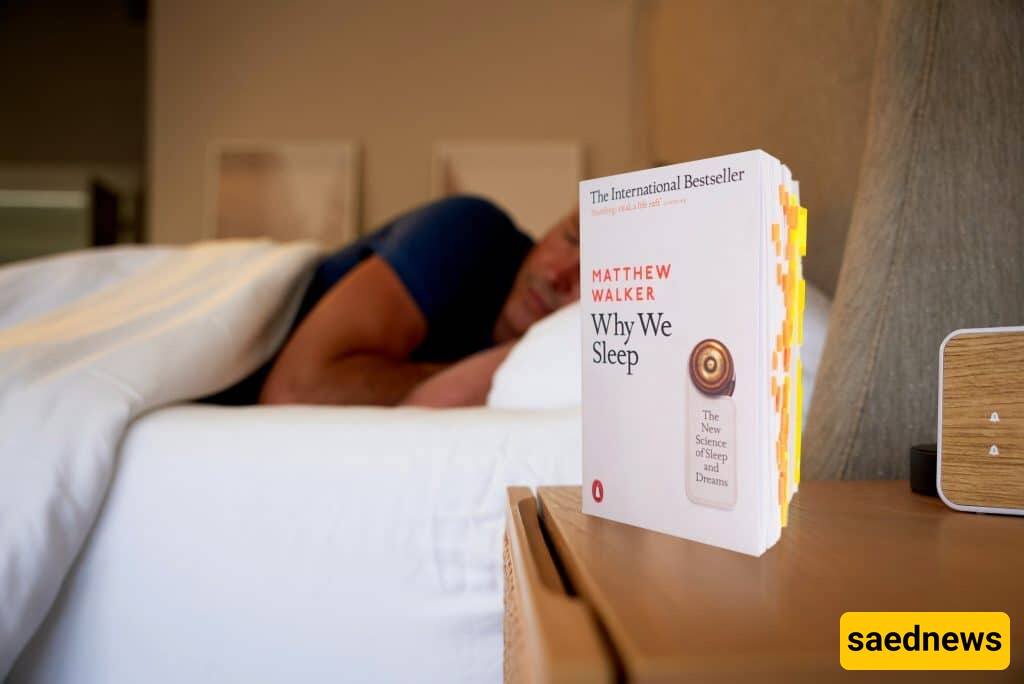SAEDNEWS: Understanding the importance of sleep can lead to improved mental and physical health, better memory, and enhanced creativity.

According to SAEDNEWS: Sleep is a fundamental aspect of our lives that often gets overshadowed by the hustle and bustle of daily activities.
But what exactly is sleep, and why is it so crucial? This exploration will take a closer look at how sleep functions, its remarkable benefits for our bodies and minds, the significance of dreaming, and the challenges posed by sleep disorders.

To grasp the concept of sleep, it’s essential to understand the two cycles that regulate it: the circadian rhythm and sleep pressure.
- Circadian Rhythm: Think of this as your wakefulness cycle. It begins early in the morning, peaking during the day, and gradually fades away as evening approaches. You might notice that after a long night of no sleep, you feel energized in the morning, thanks to your circadian cycle kicking in, which prompts alertness despite the lack of rest.
- Sleep Pressure: This cycle operates opposite to circadian rhythm. It builds throughout the day and peaks at night, urging the body to sleep. Essentially, our sleep systems engage in a continual tug-of-war, producing dynamic shifts in alertness and fatigue.
Sleep consists of two main stages: Rapid Eye Movement (REM) and Non-Rapid Eye Movement (NREM). These stages alternate throughout the night, fighting for dominance approximately every 90 minutes. REM sleep is critical for dreaming and stimulates creativity, while NREM sleep plays a vital role in transferring new information from short-term to long-term memory.

Sleep is more than merely a pause from daily activities; it is a time when essential brain functions are restored. Each stage of sleep provides unique benefits. Research shows that without adequate time in each sleep stage, our brain cannot effectively perform vital tasks.
Memory plays a significant role in the benefits derived from sleep. It not only helps in solidifying what we have learned but also protects newly acquired information. Sleep acts as a safeguard, allowing our brain to efficiently store and retrieve information later. In today’s fast-paced, always-on world, where many feel compelled to sacrifice sleep, the ramifications can be severe. Chronic sleep deprivation has been linked to severe health issues, including Alzheimer’s disease, heart ailments, and depression.
A significant part of sleep, particularly REM sleep, involves dreaming. Dreams are not just random images or thoughts; they provide substantial benefits to our emotional and mental health.
1. Emotional Healing: REM sleep offers what might be termed as overnight therapy. It helps us process emotional pain and provides a means to resolve feelings from our daily experiences.
2. Problem Solving and Creativity: Have you ever woken up with a solution to a problem that had been troubling you? That’s likely the result of your brain weaving together new information and existing knowledge during sleep. This synthesis can lead to innovative ideas and solutions.

When sleep becomes elusive, many people turn to sleeping pills as a quick fix. However, this may not be the best solution. Medications can provide sedative effects akin to alcohol, which do not facilitate natural sleep patterns essential for memory building and cognitive functioning.
Sleep is especially crucial for children and adolescents. Young minds require adequate sleep to support their development and learning capabilities. Insufficient sleep can hinder their ability to acquire and retain knowledge, placing them at a disadvantage as they encounter new challenges in life and academics.
For effective sleep habits, individuals—especially children—should aim for 8 to 10 hours of quality sleep each night. Establishing a consistent sleep schedule can help regulate sleep patterns, promoting healthier sleep habits. By aligning sleep and wake times, creating a routine can help turn sleep into a refreshing habit.
Sleep is a powerful ally in our quest for better health, learning, and creativity. Understanding its complexities can pave the way for healthier sleep habits that profoundly impact our lives. With the right approach to sleep—embracing its necessity and ensuring adequate rest—we can enhance our overall well-being and cultivate a more fulfilling life. So, let’s make sleep a priority, not just a luxury.

